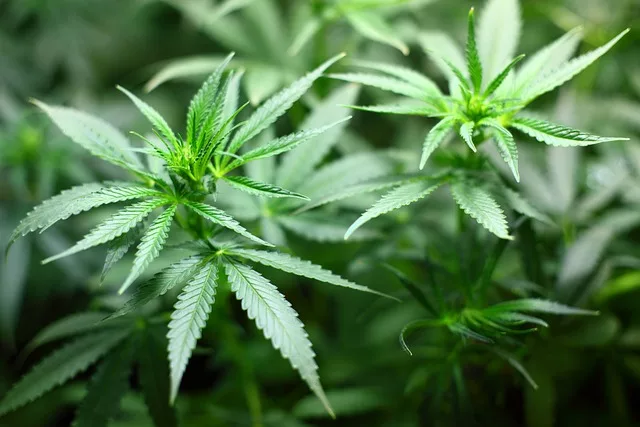Many people use marijuana for various reasons, but it is important to consider its potential impact on physical and emotional well-being. Understanding the effects of weed on health and emotions is crucial in making an informed decision about quitting. This article aims to provide a comprehensive timeline of the health and emotional benefits that can be experienced after one decides to quit using marijuana.

Understanding the Impact of Weed on Health and Emotions
Before delving into the timeline, it is important to highlight the significant implications that weed can have on both physical and emotional well-being. When it comes to physical health, the effects of marijuana use can be quite profound. Research has shown that smoking weed can cause respiratory problems similar to those associated with tobacco smoking. Continuous inhalation of marijuana smoke can damage the lungs and increase the risk of respiratory infections. This is particularly concerning for individuals who already have respiratory conditions such as asthma or chronic bronchitis.
Furthermore, marijuana use can impact cardiovascular health. It may increase heart rate and blood pressure, potentially putting individuals at a higher risk of heart attacks and other cardiovascular conditions. The strain that marijuana puts on the cardiovascular system can be particularly problematic for those with pre-existing heart conditions.
In addition to the physical implications, marijuana use can also have a significant impact on mental health. While weed is often used recreationally to relax and unwind, it can have a negative impact on mental health. Marijuana use has been associated with an increased risk of developing mental health disorders such as anxiety and depression. It can also impair memory, attention, and cognitive functioning, making it difficult for individuals to perform daily tasks and maintain focus.
Moreover, frequent marijuana use may lead to dependence and addiction, causing significant disruptions in daily life and relationships. The psychological effects of addiction can be devastating, leading to feelings of guilt, shame, and isolation. Over time, the emotional well-being of individuals who regularly use weed may be compromised, making it crucial to consider the benefits of quitting.
It is important to note that the impact of weed on health and emotions can vary from person to person. Factors such as the frequency and duration of use, individual susceptibility, and co-occurring conditions can all play a role in determining the extent of the effects. Therefore, it is essential for individuals to educate themselves about the potential risks and benefits of marijuana use and make informed decisions based on their own unique circumstances.
The Initial Stage: What to Expect in the First Week
After deciding to quit using weed, it is important to understand that the journey to healthier living is gradual. The first week can be challenging as the body and mind adjust to the absence of marijuana. During this initial stage, it is crucial to be aware of the physical and emotional changes that may occur. Understanding these changes can help individuals navigate through the first week more easily and confidently.
Physical Changes in the First Few Days
As the body detoxifies from marijuana, it goes through a series of physical changes. These changes can vary from person to person, depending on factors such as the duration and frequency of marijuana use.
One common physical withdrawal symptom is headaches. These headaches may range from mild to severe and can be accompanied by feelings of discomfort and fatigue. Staying hydrated and resting during this time is important to alleviate these symptoms.
Another physical change that individuals may experience is insomnia. The absence of marijuana can disrupt sleep patterns, making it difficult to fall asleep or stay asleep throughout the night. Establishing a bedtime routine, avoiding caffeine, and creating a calm sleeping environment can help promote better sleep during this period.
Changes in appetite are also common during the first week of quitting marijuana. Some individuals may experience an increase in appetite, while others may notice a decrease. It is important to listen to the body’s cues and eat a balanced diet to support overall health and well-being.
Engaging in regular exercise can also be beneficial during this initial stage. Exercise not only helps the body release endorphins, which can improve mood, but it also aids in detoxification by promoting sweat and increased blood circulation.
Seeking medical advice and support from healthcare professionals can provide additional guidance and assistance in managing physical withdrawal symptoms. They can offer personalized recommendations and strategies to help individuals navigate through this stage more comfortably.
Emotional Adjustments in the First Week
Quitting marijuana can also bring about emotional adjustments. The brain, which has become accustomed to the psychoactive effects of marijuana, needs time to readjust to its natural state.
Many individuals experience mood swings, irritability, and anxiety during the first week. These emotional fluctuations are a normal response as the brain adapts to the absence of marijuana’s influence.
Engaging in stress-reducing activities can help individuals cope with these emotional changes. Practices such as meditation, deep breathing exercises, or engaging in hobbies can provide a sense of calm and relaxation. These activities can also help redirect the mind’s focus away from cravings or negative emotions.
Seeking support from loved ones or joining support groups can also provide a sense of camaraderie during this challenging time. Connecting with others who are going through a similar journey can offer encouragement, understanding, and a safe space to share experiences and emotions.
It is important to remember that the first week is just the beginning of the journey towards a healthier and weed-free life. Each individual’s experience may vary, and being patient and kind to oneself during this process is essential. With time, perseverance, and support, individuals can successfully navigate through the initial stage and continue on their path towards a brighter future.

The Intermediate Stage: Weeks Two to Six
As the body continues to detoxify throughout weeks two to six, individuals may experience more noticeable physical and emotional changes. During this stage, it is important to understand how the body recovers from marijuana use. The following are the physical and emotional aspects of this intermediate stage.
Continued Physical Recovery
As the body detoxifies, it undergoes a remarkable repair process. The damages caused by marijuana use gradually start to heal, significantly improving physical health. One of the most noticeable changes during this stage is the improved functioning of the respiratory system. The lungs, which were once burdened by the toxins in marijuana smoke, begin to clear out and regain their efficiency. Individuals may find themselves breathing more easily and experiencing an increase in lung capacity.
Furthermore, the cardiovascular system also benefits from the body’s recovery. In the absence of marijuana, the heart can gradually regain its strength and efficiency. Blood circulation improves, leading to better cardiovascular health overall.
It is important to support the body’s recovery during this stage by engaging in regular physical activity. Exercise not only helps strengthen the cardiovascular system but also promotes the release of endorphins, which can boost mood and overall well-being. Additionally, incorporating a balanced diet rich in nutrients can provide the body with the necessary fuel to aid in its healing process. Individuals can optimize their physical recovery during this intermediate stage by prioritizing self-care and maintaining healthy habits.
Emotional Stability Begins to Return
Alongside the physical changes, individuals often experience a gradual improvement in emotional well-being during the intermediate stage of recovery. As the body detoxifies and adjusts to the absence of marijuana, individuals may notice a reduction in anxiety and mood swings. The mind becomes clearer, and thoughts become more organized. Improved memory and cognitive function are also commonly reported during this stage.
It is crucial to focus on maintaining a healthy lifestyle to support emotional stability. Engaging in activities that bring joy and fulfillment can positively impact overall well-being. Whether it’s pursuing a hobby, spending time with loved ones, or exploring new interests, finding sources of happiness can greatly contribute to emotional recovery.
Additionally, incorporating stress management techniques is essential during this stage. Relaxation techniques such as deep breathing exercises, meditation, and mindfulness can help individuals cope with stress and promote emotional stability. By taking care of both physical and emotional aspects, individuals can navigate the intermediate stage of recovery with greater ease and set the foundation for long-term well-being.
The Long-Term Stage: Beyond Six Weeks
Quitting weed is a journey that extends beyond the initial weeks. Consistent effort and commitment to a drug-free lifestyle can lead to long-term health improvements and emotional benefits.
Long-Term Health Improvements
With continued abstinence from marijuana, the body continues to reap health benefits. Lung function can further improve, reducing the risk of respiratory conditions. Additionally, cardiovascular health can stabilize, leading to a decreased risk of heart-related problems.
Long-term abstinence from marijuana also enables the immune system to regain strength, making individuals less susceptible to infections. Overall, quitting weed allows the body to restore its natural equilibrium, promoting optimal health and well-being.
Emotional Benefits of Long-Term Abstinence
Beyond physical health improvements, long-term abstinence from marijuana can have profound emotional benefits. Individuals often report increased mental clarity, improved cognitive functioning, and enhanced emotional stability as their brain continues to recover.
Furthermore, quitting marijuana can provide individuals with a sense of accomplishment and empowerment. Improved self-esteem and stronger interpersonal relationships are common emotional improvements experienced in the long run.
Tips for Managing Withdrawal Symptoms
Managing withdrawal symptoms is a crucial part of the quitting process. Below are some practical tips to help individuals navigate this challenging period.
Physical Symptom Management Strategies
Staying hydrated, getting enough sleep, and consuming nutritious meals can support the body’s physical recovery. Engaging in regular exercise, such as brisk walking or yoga, can help alleviate physical discomfort and promote overall well-being.
It is important to consult with healthcare professionals for personalized advice and consider utilizing medications or natural remedies to manage withdrawal symptoms effectively.
Emotional Support and Coping Mechanisms
Seeking emotional support from loved ones or joining support groups can provide individuals with the necessary encouragement and understanding during quitting. Talking to a therapist or counselor can also help individuals develop effective coping mechanisms and address any underlying emotional issues.
Engaging in stress-reducing activities such as mindfulness meditation, journaling, or pursuing creative outlets can help individuals manage emotional fluctuations and promote overall well-being. Developing a strong support network and practicing self-care is essential for long-term success in a drug-free lifestyle.
Conclusion
In conclusion, quitting weed can have profound health and emotional benefits. Understanding weed’s impact on physical and emotional well-being is crucial in deciding to quit. The timeline provided here highlights the journey individuals may experience after quitting, from the initial stages of physical and emotional adjustments to the long-term improvements and benefits of living a drug-free life.
Contact Inspire Malibu and begin your journey to a weed-free life. While the journey may have its challenges, individuals can experience a healthier, more emotionally stable life after quitting weed with the right support, coping strategies, and commitment. Take the first step towards a brighter future by choosing to prioritize your health starting today.





